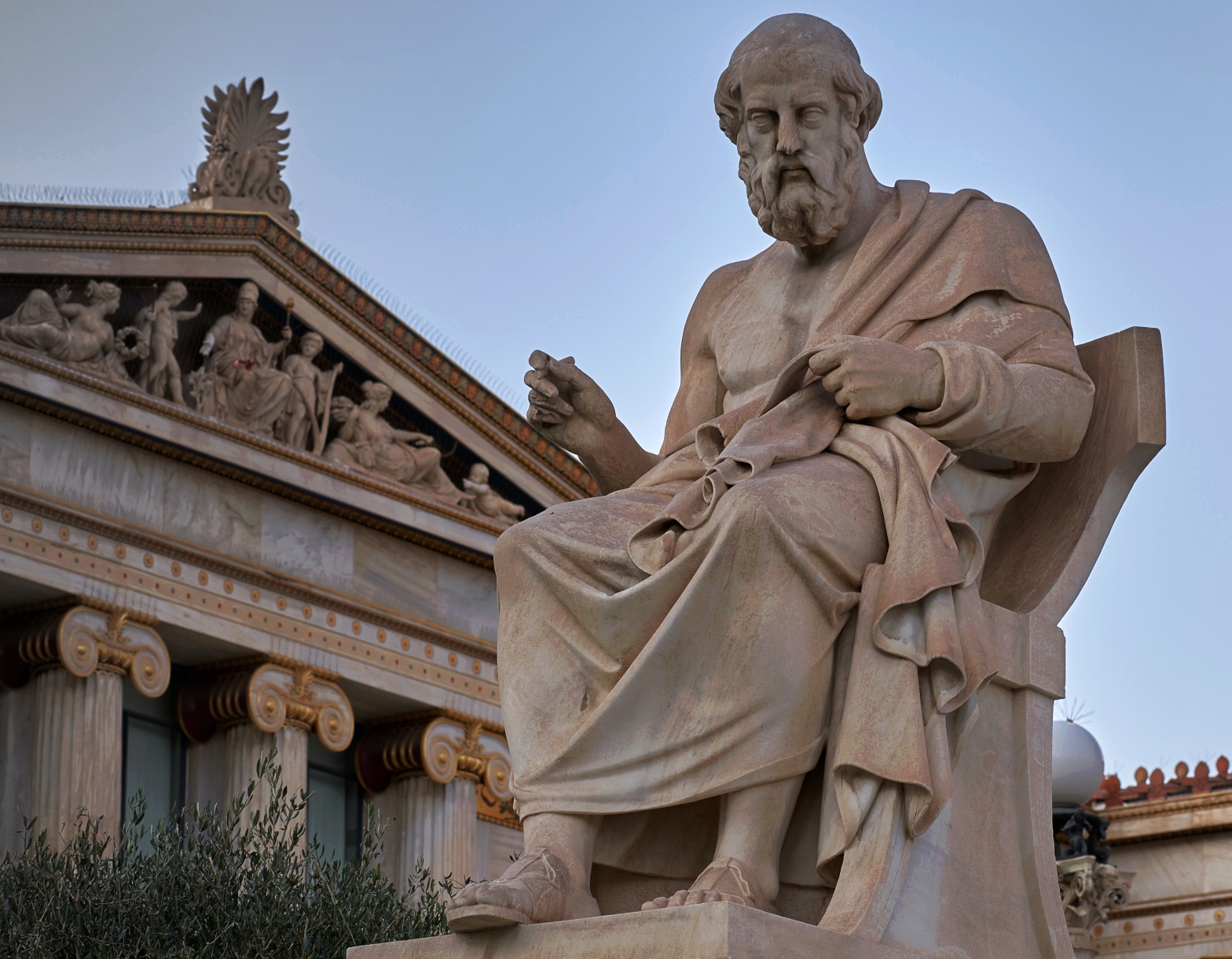Lines 234a – 249e Bio info from The People of Plato A Prosopography of Plato and Other Socratics by Debra Nails (2002) Hackett Publishing. Antiphon of Rhamnous, son of Sophiluslived ±479–411; student of, or influenced by, Gorgias; teacher of Thucydides; oligarchic leader, sophist, and rhetorician. Archinus of Coeleactive ±405–399; rhetorician, politician, and general. Aspasia ofContinue reading “A Few Menexenus Notes”
Tag Archives: ancient greece
What is Skepticism? A Very General Summary
• A word – Skeptic (also sceptic) from French sceptique, directly from Latin scepticus, and from Greek skeptikos (PIE root *spek- ‘to observe’); a noun use of an adjective meaning doubting, questioning, or seeking. Also a title used to identify people associated with figures like Pyrrho and Sextus. Lastly, skepticism is sometimes used as aContinue reading “What is Skepticism? A Very General Summary”
Understanding Skepticism: A Very General Outline
What is skepticism? A word An attitude About doubt About disbelief Seeking mental calm and clarity The way of inquiry or investigation Dealing with puzzlement and uncertainty A way of engaging in philosophical thinking Who is skepticism for? The skeptics The philosophically interested People in general How does it work? Pyrrhonism and its legacy AcademismContinue reading “Understanding Skepticism: A Very General Outline”
Preliminaries to Understanding Pyrrhonism & Ancient Skeptical Inquiry
I initiated my current study of skepticism in 2019 through reading Outlines of Scepticism by Sextus Empiricus translated by Julia Annas and Jonathan Barnes. Other reliable English language editions I’ve consulted include translations by R.G. Bury (Loeb), Benson Mates (Oxford), and Richard Bett (Princeton). As I write this it’s 2022 and over the past threeContinue reading “Preliminaries to Understanding Pyrrhonism & Ancient Skeptical Inquiry”
In Defense of Skepticism
From a recent exchange with a friend: erist —Here’s an odd rant: criticisms for skepticism that supposes it’s self-defeating seem to depend on a categorical assumption about skepticism being within the domain of philosophical activity while simultaneously challenging the basis for and nature of philosophy. I’m bringing it up because I think I’ve figured outContinue reading “In Defense of Skepticism”
Late Starts and Tragedy Quotes
I woke up too late to type out a more well-formed entry this morning. As such I have decided to share a favorite quote from Agamemnon by Aeschylus. It’s a wonderful play forming the first of The Oresteia Trilogy about the fall of the house of Atreus and the formation of the Athenian justice courts.Continue reading “Late Starts and Tragedy Quotes”
On Dates from Ancient Greek History
Many reliable scholarly resource offer a variety of conflicting date ranges. It’s important to note the variation and corresponding accounts for the given dates. However, it is not important for students to associate a fixed range with the Stone Age unless context makes it necessary. For example, it might be important if the reason forContinue reading “On Dates from Ancient Greek History”
Skepticism Journal: More Historical Background on Sextus and Hellenistic Skepticism
What was his background? It makes sense to think of a few perspectives: author, philosopher, and medical practitioner chief among them. The name Sextus Empiricus and a few comments from one of his texts suggests that he served a doctor within the empiric tradition. There’s evidence Sextus wrote medical works in addition to philosophy butContinue reading “Skepticism Journal: More Historical Background on Sextus and Hellenistic Skepticism”
Skepticism Journal: On The Introduction to PO by Jonathan Barnes
A Summary Historical Background of Hellenistic Skepticism, Outlines, and Sextus — According to Barnes the Latin edition published in 1562 by Henri Estienne corresponds to a shift in western philosophy from grounding stances in metaphysical foundations towards the epistemological. Estienne, also known as Henricus Stephanus is also the source of so-called Stephanus pagination which is stillContinue reading “Skepticism Journal: On The Introduction to PO by Jonathan Barnes”
Working Through the Euthyphro: Part 1
Euthyphro is the first dialogue in the Hackett edition of Plato’s Complete Works which they explain is following the order passed onto us by Thrasyllus. This text’s primary theme is traditionally said to be the definition of piety and/or holiness. These two terms are seemingly used interchangeably in Euthyphro with no clear means for distinguishingContinue reading “Working Through the Euthyphro: Part 1”









